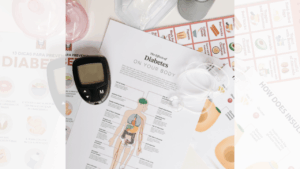Colorectal cancer — cancer of the colon and rectum — is the second leading cause of cancer-related deaths in the United States. It surpasses both breast cancer and prostate cancer in mortality when both men and women are combined. Research shows men and women are equally at risk for developing colorectal cancer. Nonetheless, someone with a family history of colorectal cancer has a much greater chance of developing the disease. It is estimated that more than 50,000 people will die from colorectal cancer this year.
MEN AND WOMEN OVER THE AGE OF 45 ARE AT THE GREATEST RISK FOR COLON CANCER
All men and women aged 45 and older are at risk for developing colorectal cancer and should be screened. Some people are at a higher risk and should be screened at an age younger than 45. This includes people with a personal or family history of inflammatory bowel disease, colorectal cancer or polyps; ovarian, endometrial or breast cancer, prostate cancer or kidney cancer.
THE SYMPTOMS OF COLORECTAL CANCER
Often called the silent disease, colorectal cancer usually develops with no detectable symptoms. Should you notice any of the following, it could denote possible colorectal cancer:
- Blood in or on the stool
- Change in bowel habits
- Stools that are narrower than usual
- General stomach discomfort (bloating, fullness, and/or cramps)
- Vomiting
- Diarrhea, constipation, or feeling that the bowel does not empty completely
- Frequent gas pains
- Weight loss for no apparent reason
- Rectal bleeding
- Constant tiredness, or new fatigue during activity that was previously tolerated
The signs and symptoms are generally the same for both men and women. If you have any of these symptoms for more than two weeks, see your doctor or health professional immediately. While not everyone who has these symptoms will have colon cancer, persistence of these symptoms is not normal and requires additional investigation to determine the underlying cause.
GOOD NEWS! COLORECTAL CANCER CAN BE PREVENTED
Polyp-related colorectal cancer can be prevented. Removing these polyps before they become cancerous may prevent cancer from developing. A low-fat, high fiber diet, with at least 5 servings of vegetables and fruit, along with regular exercise, can help lower your risk of developing colorectal cancer. Heavy alcohol use, obesity and smoking have been linked to an increased risk of developing colorectal cancer. Colorectal cancer can be cured in up to 90 percent of people when it is discovered in its early stages. It is estimated that over 40,000 lives a year could be saved through widespread adoption of colorectal cancer screening and early detection in men and women.
SCREENING FOR COLORECTAL CANCER
Current screening methods include:
- Colonoscopy — a visual examination of the entire colon
- Fecal occult blood test – it can detect hidden blood in the stool
- DNA testing
- Double contrast barium enema
- Digital rectal exam
- Virtual colonoscopy, or CT colonography
Colorectal cancer screenings are typically covered by Medicare and many commercial health plans.
TREATMENT OPTIONS FOR COLORECTAL CANCER
Colon cancer treatment typically involves a combination of therapies, such as surgery, chemotherapy, radiation therapy and/or targeted therapy. Some patients may also elect to participate in a clinical trial.
TALK TO YOUR PROVIDER
If you have questions about colorectal cancer, or you are over 45 years of age and have not had a colonoscopy within the past 5 years, contact your primary care provider for a check-up and referral. If you do not have a primary healthcare provider, contact the CCMH Medical Clinic at 712-265-2700, or go online at ccmhia.com to request an appointment.


